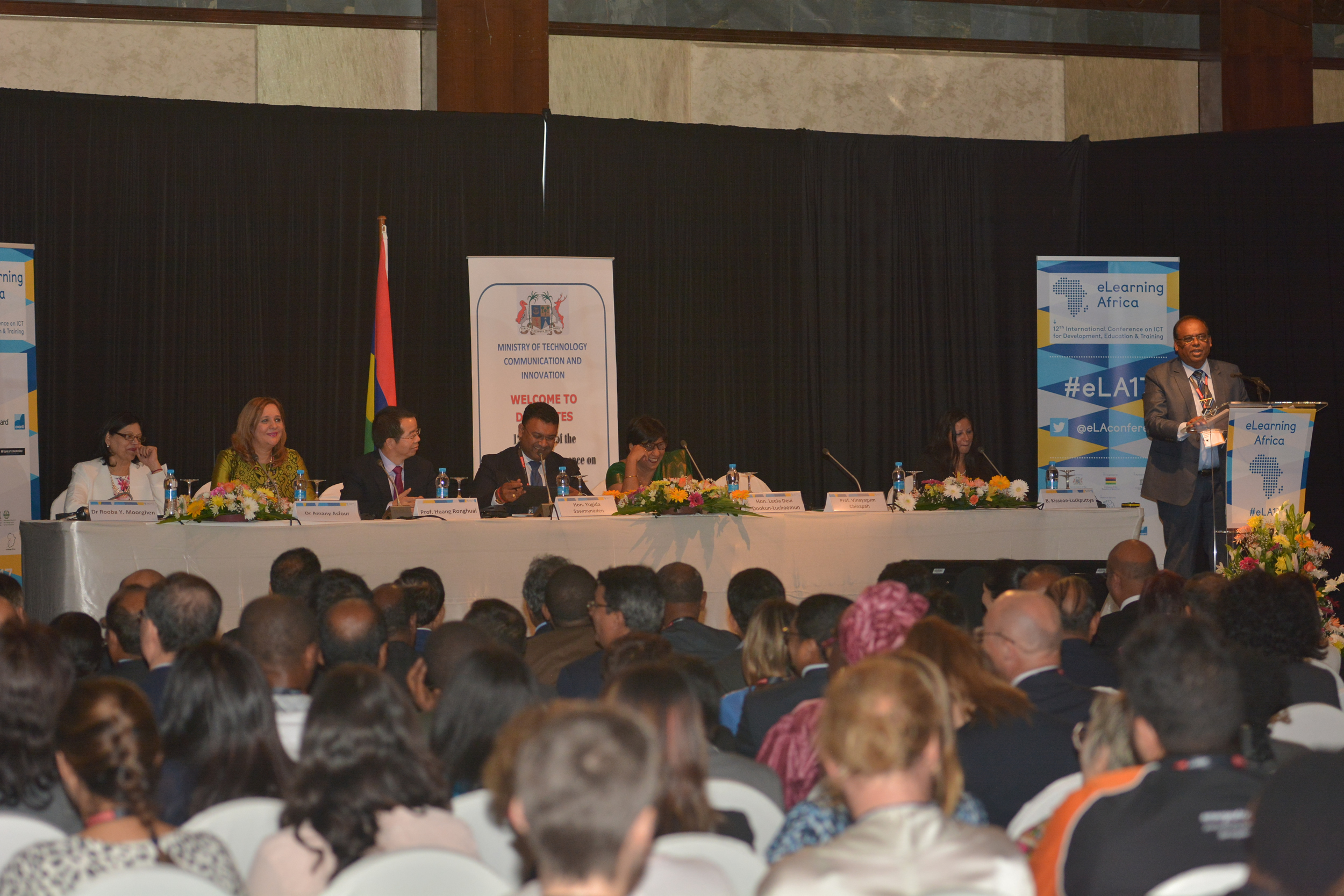
eLearning Africa: Minister Announces New Technology Initiative for Primary Schools
Children at primary schools in Mauritius are to be given PC tablets as part of a major initiative co-sponsored by the Government of India.
eLearning Africa: Minister Announces New Technology Initiative for Primary Schools
Children at primary schools in Mauritius are to be given PC tablets as part of a major initiative co-sponsored by the Government of India.
Speaking at the opening session of eLearning Africa on September 27th, Leela Devi Dookun-Luchoomun, the Minister of Education of Mauritius, an African Union country, announced that personal computer (PC) tablets will be made available for Mauritian schoolchildren in January 2018.
The announcement of the initiative to encourage digital literacy among primary schoolchildren marks the latest stage in a determined effort by Mauritius to upgrade its education system as part of its plan to turn the country into a high-income economy by 2030. Mauritius also sees itself as a leader in technology-assisted learning and an example to other African nations.
"African countries have to invest early in ICT so as to consolidate the quality of education, right from an early age," said Mrs Dookun-Luchoomun. "I'm particularly pleased to announce that my Ministry will, from the start of the school year in January 2018, provide PC tablets for students of Grade 1 and 2 to be used as part of the teaching-learning process. The introduction of ICT to early childhood education will be intrinsically linked to the major reform process under implementation in the education sector in Mauritius."
Mrs Dookun-Lauchoomun reminded her audience, which included ICT and Education Ministers from several African countries, of the "paramount importance of early childhood development." She told them that there was "glaring evidence of the low penetration of ICT in early childhood education."
Mauritius is seeking to carve a niche for itself as a champion of technology-assisted learning in Africa. Speaking at the same session of eLearning Africa, which is the Continent's largest conference on ICT in education, the Mauritian Minister of Information and Communications, Yogida Sawmynaden, said,
"We realise that proper education is key in transforming Mauritius into an inclusive, high-income country, in line with the Government’s Vision 2030... but rather than just being users of new technologies, young people must understand how technology works and how the science of these technologies operates. Furthermore, they must be skilled enough to be creators of similar technologies.
"We do not want a nation of users only. We want a nation of innovators and technology creators."
Mr Sawmynaden said that the "challenge will be to educate our kids for the new jobs and new skills of the future, which, by definition, have not yet been created...It is imperative that we start using modern educational tools and techniques in order to create a modern workforce."
He said that these tools and techniques include internet connectivity; WiFi-equipped classrooms; devices such as tablets; updated and interactive online content; mobile education applications; and "most importantly, digitally fluent teachers."
Government Ministers from several African countries attended the annual Ministerial Round Table, which took place ahead of the opening of the main conference. eLearning Africa, which has attracted participants from over 60 countries to Mauritius, will close today evening, with a debate on the value of "Silicon Valley initiatives" to African countries’ education sectors.


